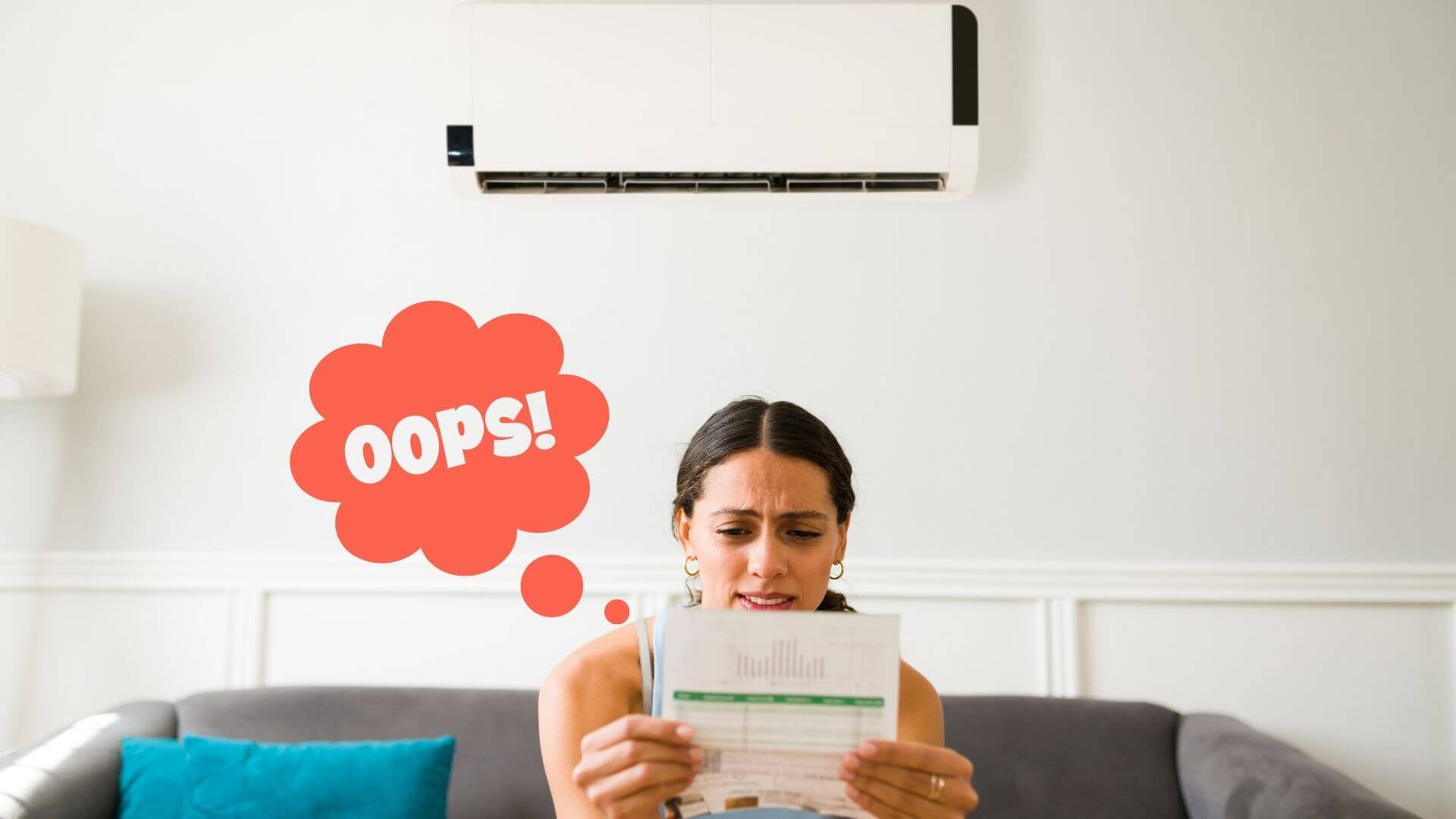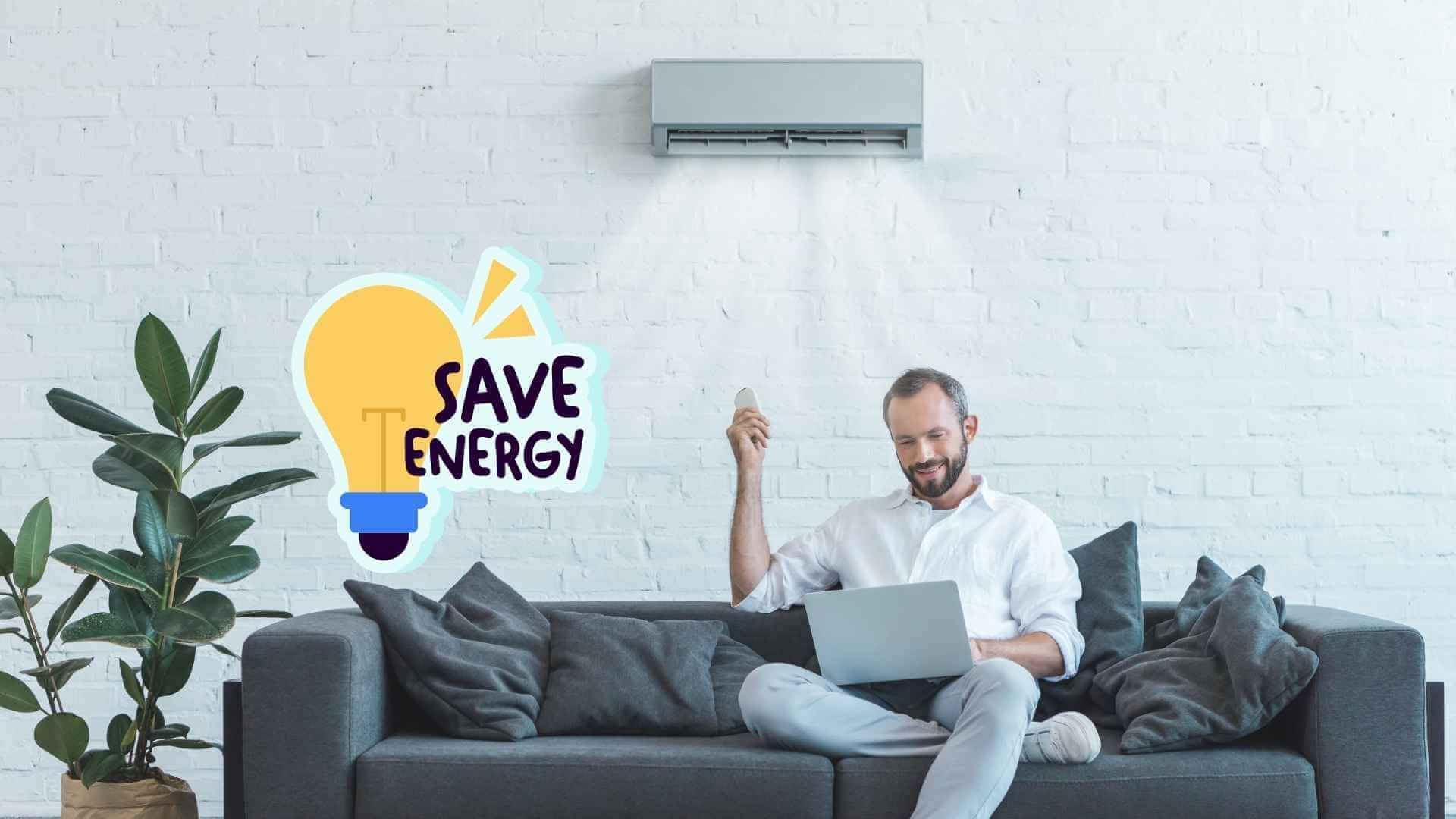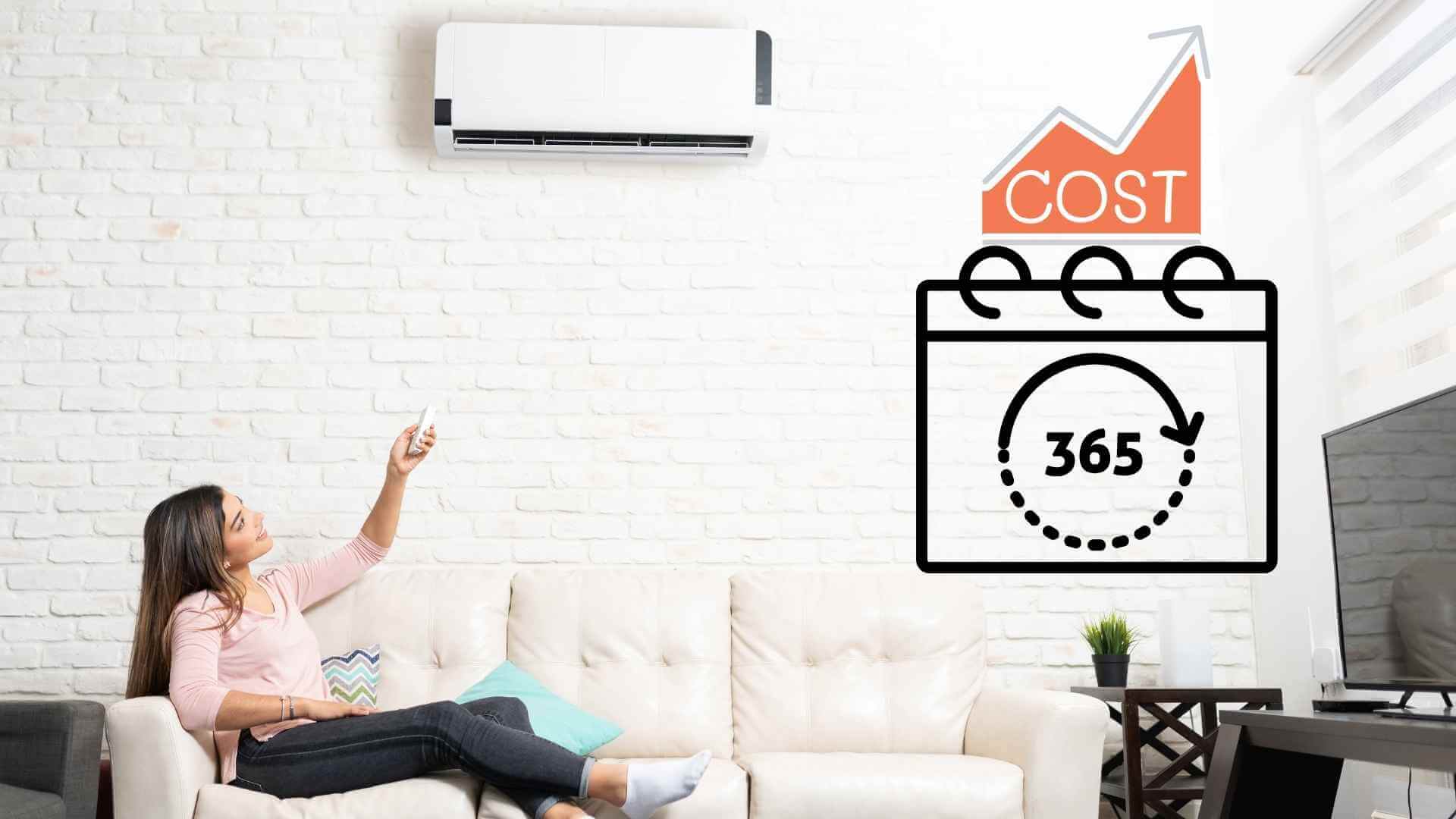During the hot summer months, it’s common to experience a rise in your electricity bill. A significant portion of this spike is often caused by high air conditioner (AC) power consumption. In this guide, we’ll discuss 10 common mistakes that could be contributing to your high electricity bill and provide actionable fixes to help reduce your AC electricity cost.
Let’s dive into the most effective ways to lower your monthly energy bill while ensuring your home stays cool. Take control of your energy bills with our AC energy consumption calculator and start reducing your AC costs today!
1. Setting the Thermostat Too Low
How It Affects Your Electricity Bill
One of the most common mistakes homeowners make is setting the thermostat too low. When you set your thermostat to a very low temperature, your AC unit must work harder to cool your home, leading to higher electricity consumption.
Key Statistics:
- High electricity bill increase: Lowering your thermostat by 1°F increases energy consumption by about 6%.
- Air conditioner power consumption: Excessive cooling demands can double your monthly energy bill during peak summer months.
Fix: Adjust Your Thermostat to Save Energy
To maximize energy efficiency, aim for a thermostat setting of 78°F (25.5°C) when you’re at home. During sleep or when you’re away, increase the temperature by 5–10 degrees to avoid overusing air conditioning.
2. Neglecting HVAC Maintenance
Why HVAC Maintenance is Critical
Dirty air filters, refrigerant leaks, and ductwork issues can drastically reduce the efficiency of your AC system, resulting in higher energy costs. These common AC performance problems increase the load on the cooling system, making it harder to maintain the desired temperature.
Fix: Regular AC Unit Servicing and Maintenance
Schedule HVAC maintenance at least once a year, ensuring that your unit is serviced by a professional. Regular servicing improves cooling system efficiency, boosts air conditioner energy savings, and reduces the risk of costly repairs.
| Maintenance Task | Frequency | Benefit |
|---|---|---|
| Replace Air Filters | Every 1-3 months | Improves airflow and efficiency |
| Clean Coils and Condenser | Once a year | Reduces strain on the AC system |
| Check Refrigerant Levels | Annually | Prevents overcooling and excessive usage |
| Inspect Ductwork for Leaks | Annually | Ensures optimal airflow and cooling efficiency |
3. Using an Old or Non-Programmable Thermostat
Why It Increases Costs
Without a smart thermostat or programmable thermostat, your cooling habits are often inefficient. Manually adjusting your thermostat throughout the day can result in unnecessary cooling when it’s not needed, causing inefficient cooling habits that drive up energy bills.
Fix: Upgrade to a Smart or Programmable Thermostat
A smart thermostat can be programmed to adjust the temperature based on your schedule, ensuring that you’re not wasting energy cooling your home when you’re not around. The advanced settings also help monitor and optimize your energy usage for long-term savings.
How Programmable Thermostats Save Energy
- Energy savings tips: Smart thermostats can help reduce your AC energy consumption by learning your preferences and adjusting the temperature accordingly.
- Seasonal energy usage optimization: These thermostats adjust based on the time of day, reducing peak hour electricity usage and lowering summer electric bills.
4. Dirty Air Filters Leading to Inefficient Cooling
How Dirty Air Filters Affect Your AC Performance
When air filters are clogged with dirt and dust, your AC system’s efficiency decreases. Restricted airflow means the system has to work harder to cool your home, increasing energy consumption and reducing AC power usage.
Fix: Replace Air Filters Regularly
To maintain optimal airflow and cooling system efficiency, clean or replace air filters every 1–3 months. This small adjustment can improve your system’s efficiency and reduce unnecessary electricity consumption by appliances.
5. Ignoring Insulation and Air Sealing
Why Poor Insulation Results in Higher Bills
Poor insulation in your home or failing to seal air leaks can lead to warm air entering while cool air escapes, forcing your AC unit to work harder and consume more energy.
Fix: Seal Air Leaks and Improve Insulation
By sealing gaps around windows, doors, and ductwork, you can prevent energy-wasting mistakes that lead to inefficient cooling. This will help your AC system run more effectively and keep your home cooler with less energy.
| Sealant Type | Usage | Benefit |
|---|---|---|
| Weatherstripping for Windows | Around all windows | Blocks drafts and prevents cool air loss |
| Insulation in Attic | Around ducts | Reduces heat gain and cooling loss |
6. Running the AC System 24/7
Why Overusing Air Conditioning Increases Costs
Using your air conditioner for long periods without breaks can lead to overuse, driving up your energy costs. Constantly running the compressor or leaving the system running at all times contributes to high power bills.
Fix: Use Energy-Saving Habits for Better Cooling Efficiency
Rather than running your AC 24/7, use fans or close curtains to keep your home cooler naturally. Also, ensure you use a programmable thermostat to control the cooling schedule more efficiently.
Additional Energy-Saving Tips
- Install blackout shades to reduce heat gain.
- Increase the airflow with ceiling fans and floor fans.
- Use cooling system settings wisely to optimize cooling needs.
7. Placing the AC Unit in Direct Sunlight
How Sun Exposure Affects Your Air Conditioner
When your air conditioning unit is placed in direct sunlight, it has to work harder to cool your home, leading to high utility bills. The sun’s heat forces the system to consume more energy, increasing cooling system costs.
Fix: Relocate Your AC to a Shaded Area
Place your unit in a shaded spot to prevent it from overworking due to direct sunlight. This simple step will reduce AC energy savings by improving cooling efficiency.
8. Using Outdated or Inefficient HVAC Systems
Why Inefficient HVAC Systems are Costly
Older AC units or inefficient HVAC systems can waste a significant amount of energy, increasing your monthly electricity consumption. Over time, these systems lose efficiency and become more expensive to run.
Fix: Upgrade to a High-Efficiency AC Unit
Investing in an energy-efficient central air conditioning system can lead to substantial long-term savings. Look for Energy Star-rated models to ensure you’re getting the best performance for your energy dollars.
9. Lack of Regular AC Unit Servicing
How Poor AC Servicing Affects Performance
Skipping regular AC servicing can result in compressor running constantly, low refrigerant levels, and general AC performance problems. These issues put extra strain on your unit, driving up electricity consumption by appliances.
Fix: Follow an AC Maintenance Schedule
Adhering to a regular AC maintenance schedule helps avoid refrigerant level problems and keeps the unit running efficiently, which is essential for reducing summer electric bills.
10. Not Conducting an Energy Audit for Home
Why You Need an Energy Audit
An energy audit can help identify areas where your home is wasting energy, such as poor insulation, air leaks, or malfunctioning systems. Failing to recognize these inefficiencies means higher electricity consumption by appliances, resulting in high power bills.
Fix: Schedule an Energy Audit for Home
A professional energy audit can highlight critical issues like ductwork problems or insulation gaps. By fixing these, you can significantly reduce energy consumption and improve home energy optimization.
Conclusion
By following these AC usage tips and energy efficiency tips, you can reduce the chances of facing high utility bills and excessive summer energy bills. Proper maintenance, smart thermostat usage, and addressing insulation and air leaks are just a few ways to make sure your AC power usage stays in check. Don’t forget to schedule regular servicing and upgrades to avoid energy-wasting mistakes and boost your cooling system’s efficiency. Stay cool and save energy this summer!
Calculate your AC power usage cost in minutes with ACBillCalc.com, and start saving on your energy bills. If you need further assistance or have questions about electric bill troubleshooting, feel free to reach out. Happy cooling!



